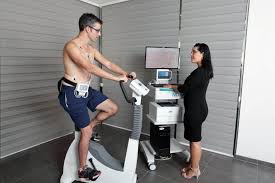
Visiting an urgent care facility may seem daunting, especially when you aren’t feeling well. Preparing in advance can help make your visit smoother and more efficient. Knowing what to expect and bringing the right items will help you receive the care you need without unnecessary delays.
What Is Urgent Care?
Urgent care facilities bridge the gap between primary care and emergency rooms. They provide walk-in medical services for conditions that require attention but are not life-threatening emergencies. These centers are equipped to handle a range of health issues, from minor injuries to illnesses.
Urgent care is staffed by healthcare professionals. Many facilities also offer imaging services, lab tests, and basic procedures for treating injuries like cuts or fractures. The convenience of extended hours and walk-in appointments makes these clinics an option for many patients.
Urgent care is not meant to replace routine primary care. Your primary care physician is the right resource for regular check-ups and managing chronic conditions. While urgent medical care is great for addressing immediate, non-life-threatening issues, it doesn’t provide the continuity of care that a primary doctor offers.
When Should I Go?
Understanding when to visit an urgent clinic can save you time and help you access appropriate care. It can treat conditions that require prompt attention but are not severe enough for an emergency room visit. Examples include minor burns, sprains, flu-like symptoms, or mild asthma attacks.
Urgent care is also a good option for situations like ear infections, fever, or urinary tract infections. These issues need prompt evaluation but don’t typically warrant emergency intervention. If you’re unsure whether urgent care or the ER is right, many facilities offer guidance online or over the phone before your visit.
If you experience any life-threatening conditions, such as chest pain, severe burns, or difficulty breathing, the emergency room is the place to go. These situations require immediate medical attention to protect your health and safety. Act quickly and seek help without delay when faced with such emergencies.
What Should I Bring With Me?
Being well-prepared will help streamline your visit to an urgent clinic. Start by bringing a form of identification, such as a driver’s license or state-issued ID. This will be needed for registration purposes. Carry your insurance card as well, as most facilities require this for billing or verifying coverage.
Along with identification, bring a list of medications you’re currently taking, including dosages. You may also want to bring any recent medical records or test results relevant to your condition. If you’ve seen another healthcare provider for the same issue, these records can help the urgent care staff better understand your situation.
It’s also helpful to have a list of allergies, especially if you have reactions to certain medications. For young children or elderly family members, you may want to bring a care summary that includes their health history. Remember to bring payment methods like a credit card, as most facilities request copayments or fees at the time of the visit.
What Is Urgent Treatment Like?
When you arrive, the first step is completing the registration process. This typically involves presenting your ID, insurance card, and filling out forms about your medical history. Some facilities even allow online check-ins in advance to speed up the intake process.
After registration, you’ll be guided to a treatment area where a healthcare professional will assess your condition. Depending on your symptoms, this may involve a physical exam, imaging tests, or lab work. The goal is to provide a thorough evaluation and determine the right course of action.
The duration of your visit will depend on the complexity of your condition and how busy the clinic is at the time. Most patients leave with a treatment plan or instructions for follow-up care. Staff members are available to answer your questions and provide clarity on next steps.
Be Prepared for Your Next Visit
Proper preparation can make your urgent care visit a stress-free experience. Bringing the right documents and having a clear understanding of your symptoms will help the healthcare team deliver timely and effective care. Take the next step by visiting a trusted clinic in your area.
Recommended Articles
Foot Injuries in Athletes: Prevention and Treatment Strategies
Congestive Heart Failure and Mental Health: Managing Anxiety and Depression
How Early Detection Affects Glaucoma Progression
Rentumo: The Ultimate Rental Search Platform for Tenants and Landlords





